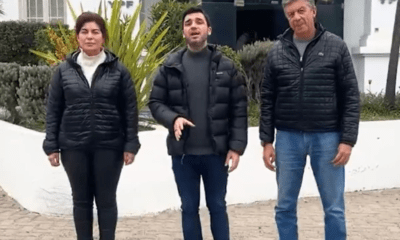INTERNACIONAL
Iran vows retaliation if UN Security Council issues snapback sanctions on anniversary of nuclear deal
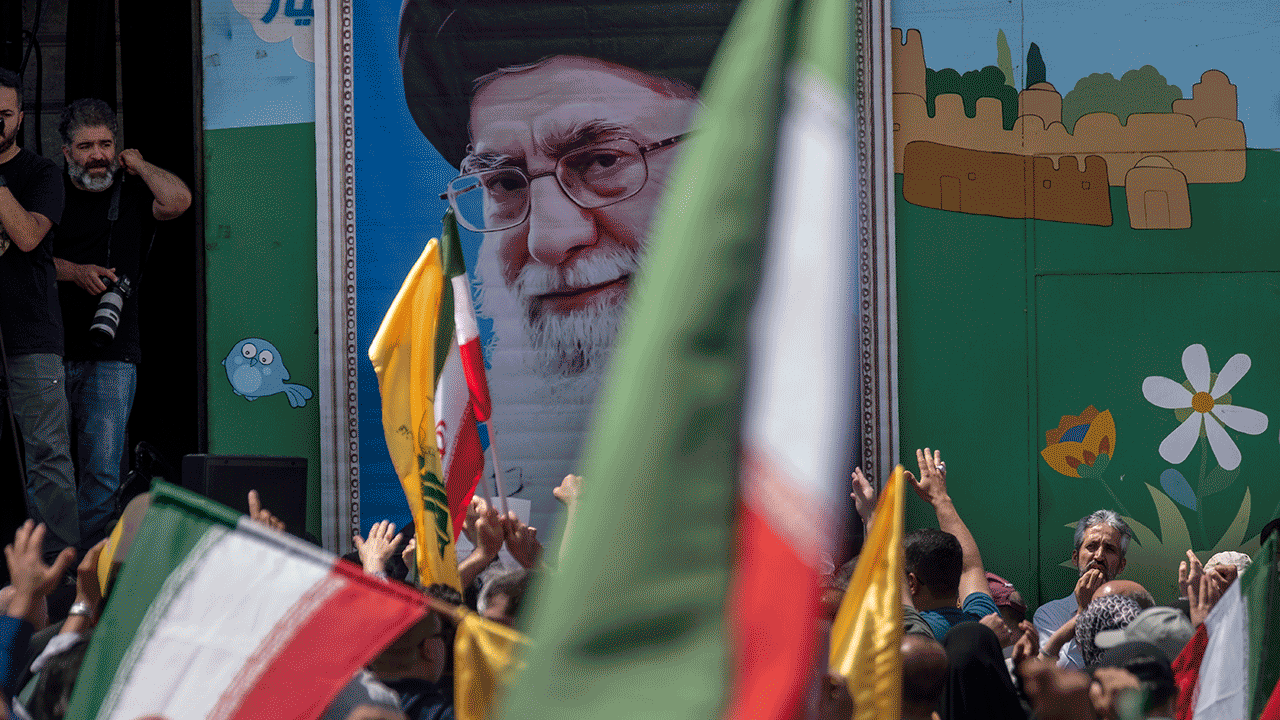
NEWYou can now listen to Fox News articles!
Iran on Monday warned that it would retaliate if the United Nations Security Council (UNSC) took steps to impose «snapback» sanctions as nations mull further action to halt Tehran’s nuclear development.
«The threat to use the snapback mechanism lacks legal and political basis and will be met with an appropriate and proportionate response from the Islamic Republic of Iran,» Foreign Ministry spokesperson Esmaeil Baghaei claimed during a press conference, according to a Reuters report.
Baghaei did not expand on how Iran would retaliate, but his threats come amid repeated warnings from security experts that time is running out to enforce the sanction mechanism by Oct. 18 under terms dictated by the 2015 nuclear deal.
Esmaeil Baghaei, Iran’s foreign ministry spokesman, speaks during a press conference in Tehran and warns of retaliation if the U.N. issues snapback sanctions, on July 14, 2025. (Atta Kenare/AFP via Getty Images)
IRAN CLAIMS ITS PRESIDENT WAS INJURED IN ISRAELI AIRSTRIKE LAST MONTH
The comments coincided with the 10-year anniversary of the Joint Comprehensive Plan of Action (JCPOA), which was originally intended to halt Iran’s nuclear ambitions, but which some have argued was insufficient to adequately deter Tehran.
Under the terms of the JCPOA, any signatory can unilaterally call up snapback sanctions if Iran is found to have violated the terms of the agreement.
Though the U.S., which, alongside the U.K., France, Germany, China and Russia, signed the 2015 deal, was deemed by the U.N. and other JCPOA members unable to utilize the mechanism after Washington withdrew from the agreement in 2018 during President Donald Trump’s first term.
Despite repeated calls by the U.S. to enforce snapback – which would legally enforce all 15 U.N. members on the council, including Russia, to reimpose sanctions on Iran – no one on the UNSC or JCPOA has yet taken steps to enforce the sanctions.
«I would say one of the few good things about the JCPOA is that it reverse engineers the veto in the sense that you really only need one of the permanent members to be able to do this,» Behnam Ben Taleblu, senior director of the Foundation for Defense of Democracies’ Iran orogram told Fox News Digital. «But why is no one doing it? It’s because it’s a risky move.
«I think it’s a worthwhile move, but we have to be honest – it’s a risky move,» he added.
Ben Taleblu explained that Iran’s most likely response to the severe sanctions under the snapback mechanism would be its abandonment of the Treaty on the Non-Proliferation of Nuclear Weapons (NPT) – an international agreement that over 190 nations have signed, pledging either not to transfer weapons to another recipient by nuclear-capable nations, or not to develop atomic arms by non-nuclear nations, among other commitments.
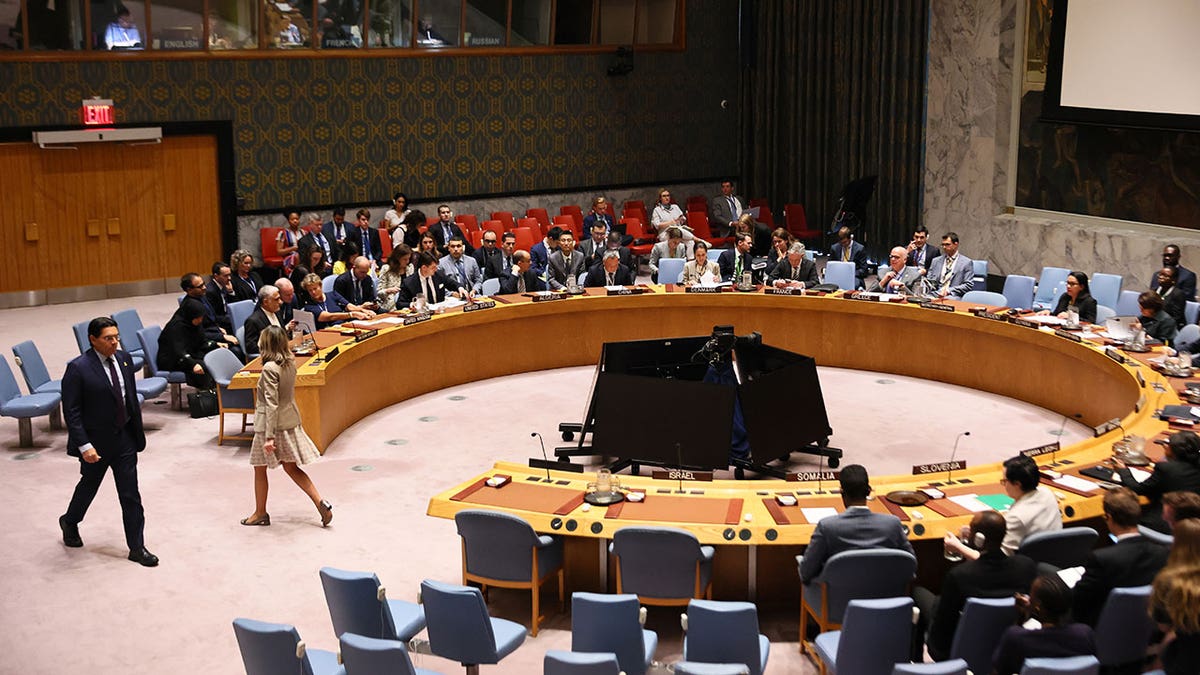
Members of the Security Council attend a meeting on threats to international peace and security at the United Nations on June 13, 2025, in New York City. (Michael M. Santiago/Getty Images)
TIME IS RUNNING OUT TO STOP IRAN FROM MAKING NUCLEAR BOMB: ‘DANGEROUS TERRITORY’
The terms of the agreement are monitored by the U.N.’s International Atomic Energy Agency – which Iran has already suspended cooperation with following U.S. and Israeli strikes against its nuclear program last month.
«In a world in which Iran’s most likely response is to leave the NPT, one has to be confident in at least the ability of military threats to deter Iran further, or at least the credibility of America’s and Israel’s, or the international community’s, military options against Iran moving forward,» Ben Taleblu said.
«The problem is the lack of a game plan. Has America provided Europe with a game plan, a road map for post-snapback?» he added, noting there needs to be a much larger strategy for next steps should sanctions be reinforced.
Though the U.S. assesses that Iran’s nuclear program has been stunted by up to two years, experts remain convinced that Tehran’s atomic ambitions have not been deterred, and its ties to terrorist networks and adversarial nations mean it remains a top security concern.
Trump has said he is still committed to negotiating with Iran on its nuclear program, though questions remain over how long he will continue to allow negotiations to drag out before a European nation like the U.K., France or Germany must step in to enact snapback sanctions not only before the October deadline, but before Russia takes over control of the UNSC presidency that month.
Pushing through the snapback mechanism is expected to be a roughly six-week process.

A banner depicting Iran’s Supreme Leader Ayatollah Ali Khamenei is placed next to a ballistic missile in Baharestan Square in Tehran on Sept. 26, 2024. (Hossein Beris/Middle East Images/AFP via Getty Images)
CLICK HERE TO GET THE FOX NEWS APP
Reports on Sunday suggested that German Chancellor Friedrich Merz could call up the snapback measures as soon as Tuesday, and U.S. Ambassador to Israel Mike Huckabee championed the move in a post on X.
But Fox News Digital could not independently verify these claims and the German Foreign Ministry told Israeli news outlet JNS that the claims were incorrect.
The chancellor’s office did not immediately respond to Fox News Digital’s questions.
INTERNACIONAL
Tras los enfrentamientos que dejaron decenas de muertos, las autoridades sirias y los drusos negocian un alto el fuego

Las autoridades sirias y representantes de la comunidad drusa comenzaron negociaciones la noche del lunes para detener los enfrentamientos armados que causaron cerca de un centenar de muertes en el sur de Siria, según informó el portavoz del Movimiento Hombres de la Dignidad, Basem Fakhr, a la agencia AFP. El proceso de diálogo involucra a notables de la ciudad de Sweida, donde estalló la violencia el domingo entre combatientes drusos y beduinos, así como a funcionarios del Ministerio de Defensa y de las fuerzas de seguridad general sirias.
Los contactos se realizan en medio del avance de fuerzas gubernamentales hacia la ciudad de mayoría drusa. El nuevo gobierno sirio, encabezado desde diciembre por Ahmad al Sharaa, enfrenta estos desafíos en un contexto posterior a la caída de Bashar al Assad tras casi 14 años de guerra civil.
Las fuerzas gubernamentales sirias desplegaron importantes refuerzos en la provincia de Sweida y avanzaron hacia la ciudad homónima tras la escalada de violencia registrada desde el domingo, según reportó un corresponsal de AFP. Durante la tarde del lunes, las tropas lograron tomar control del pueblo druso de Al Mazraah, situado en las afueras de Sweida, y sus unidades se aproximaron al centro de la ciudad, conforme confirmó el Ministerio de Defensa.
El comandante Ezzedin al Chamayer señaló que las fuerzas del Ministerio de Defensa se dirigían directamente hacia Sweida, intensificando la presión en medio de los enfrentamientos entre combatientes drusos y beduinos. Además, el Ministerio del Interior informó que tanto el ejército como las fuerzas de seguridad interior estuvieron movilizándose a las zonas críticas para intentar restablecer la calma.
El portavoz del Movimiento Hombres de la Dignidad, Basem Fakhr, explicó a AFP que existe un diálogo activo entre los notables de Sweida y representantes del Ministerio de Defensa y de las fuerzas de seguridad general para lograr una solución negociada al conflicto intercomunitario.

El ministro del Interior, Anas Khatab, atribuyó en una publicación en la red social X la persistencia de las tensiones en Sweida a “la ausencia de instituciones estatales, militares y de seguridad”, que según él genera condiciones para el desorden y nuevos brotes de enfrentamientos.
En paralelo, las autoridades religiosas drusas han exhortado a los residentes a mantener la calma. El jeque Hikmat al-Hejri, una de las figuras más influyentes entre los drusos, exigió protección internacional inmediata para su comunidad y expresó su negativa a permitir la entrada de las fuerzas gubernamentales en las áreas bajo control druso.
El Observatorio Sirio de Derechos Humanos (OSDH) actualizó el lunes el saldo de víctimas de los enfrentamientos ocurridos en la ciudad de Sweida y otras localidades de la provincia, contabilizando 99 muertos y decenas de heridos tras los combates y ataques de artillería. Según el balance del OSDH, entre los fallecidos se encuentran 60 drusos, en su mayoría combatientes, así como dos mujeres y dos niños. Además, se registró la muerte de 18 beduinos, 14 integrantes de las fuerzas de seguridad y siete personas no identificadas.
El Ministerio de Defensa sirio confirmó por su parte que 18 miembros de las fuerzas armadas perdieron la vida en el transcurso de estos hechos violentos.
La provincia de Sweida acoge a la mayor comunidad drusa de Siria, con una población estimada de 700.000 personas, según cifras presentadas en la cobertura. Los drusos constituyen una minoría derivada del chiismo, aunque se consideran parte de una corriente esotérica. Fuera de Siria, las comunidades drusas también se localizan en Líbano e Israel.
La región ha experimentado tensiones previas entre drusos y fuerzas de seguridad sirias, así como con las tribus beduinas suníes, cuya rivalidad se remonta a largo tiempo y ha provocado brotes recurrentes de violencia. El Observatorio Sirio de Derechos Humanos detalló que en abril ocurrieron enfrentamientos similares cerca de Damasco y en el propio Sweida, con un saldo superior a 100 muertos. Posteriormente, tribus beduinas apoyaron a las fuerzas de seguridad durante esos incidentes.
Con el objetivo de evitar una escalada, los líderes locales y religiosos promovieron acuerdos para facilitar la integración de combatientes drusos en las instituciones del nuevo poder. Sin embargo, la convivencia entre distintas minorías representa un desafío considerable para el gobierno interino, especialmente tras la ola de ataques contra la comunidad alauita en marzo, que resultó en más de 1.700 víctimas, y los mortales ataques sufridos por los drusos a finales de abril.
(Con información de AFP)
horizontal,minorities
INTERNACIONAL
Cuomo opponents slam his re-entry into NYC mayor race, say city wants to move on from ex governor
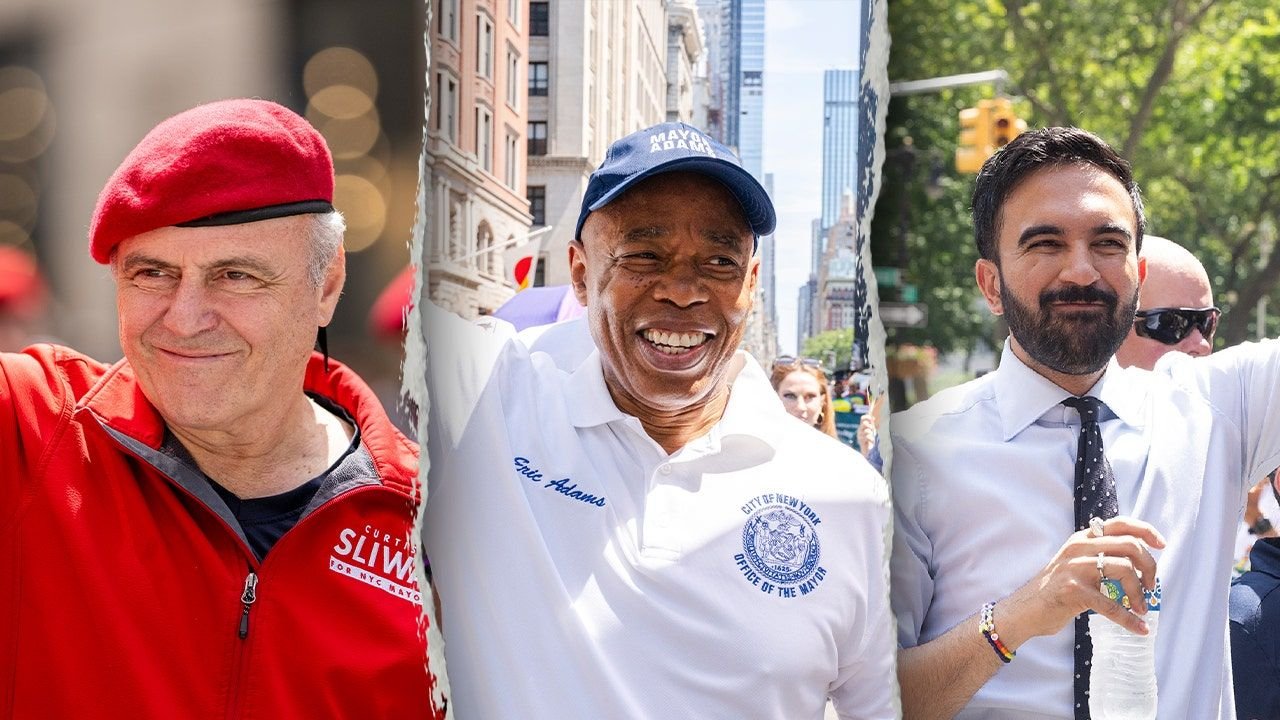
NEWYou can now listen to Fox News articles!
The Democratic, Republican and independent candidates for New York City mayor don’t often agree on much, but they appear to be in lock-step over the view that New Yorkers want someone different than former Governor Andrew Cuomo to run the Big Apple.
Zohran Mamdani and Curtis Sliwa, the Democratic and Republican nominees for New York City mayor, were quick to respond to Andrew Cuomo’s announcement that he will stay in the race as an independent after the former governor of New York lost his Democratic primary a few weeks ago. While blasting Cuomo, the pair also used the opportunity to slam incumbent independent mayoral candidate Eric Adams, who, on Monday, said Cuomo «had his opportunity» already, but New Yorkers no longer buy his message.
«Andrew is a double-digit loser in the primary. He lost by 12 points. He had his opportunity. He spent $25 million to get his message out. New York has heard it. He did not sell it,» Adams said at a Monday press conference. The comments followed a separate press release his campaign put out Sunday amid rumors Cuomo would be re-joining the race as an Independent, saying that Cuomo’s «political double-dealing» was the reason why New Yorkers have «lost trust» in him.
MAMDANI LANDS ENDORSEMENT OF A TOP CUOMO BACKER IN NYC MAYORAL PRIMARY
Former New York Governor Andrew Cuomo’s opponents in the NYC mayoral race all expressed criticism that New Yorkers want someone new to lead after he announced his decision to re-enter the race as an Independent after losing his Democratic Party primary election a few weeks ago. (Getty Images)
«I welcome everyone to this race, and I am as confident as I have been since three weeks ago on primary night when we faced Andrew Cuomo,» Democratic Party nominee Mamdani said at a Monday press conference following Cuomo’s announcement. «We did so because of the fact that while Andrew Cuomo and Eric Adams trip over themselves to make deals in back rooms with billionaires, we are focused on fighting for working New Yorkers. I think he’s struggling to come to terms with what [Cuomo’s primary loss] meant.»
Mamdani added that while Cuomo may have envisioned himself as becoming the next mayor, the Democratic primary results showed NYC’s «hunger for a new kind of politics.»
«I understand that it is difficult for the former governor to come to terms with [his loss] because it is a repudiation of the politics that he has practiced that he has known for so many years, and it is that same politics that we are turning the page on.»
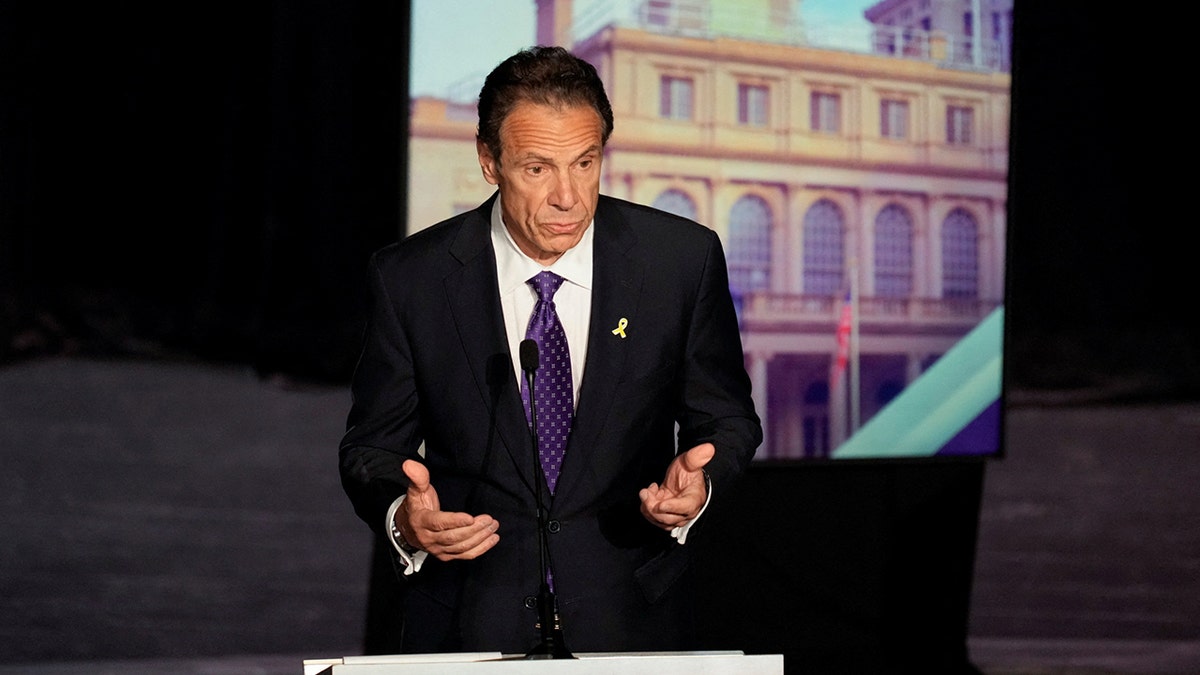
Former Gov. Andrew Cuomo speaks during the New York City Democratic Mayoral Primary Debate at the John Jay College of Criminal Justice in the Gerald W. Lynch Theater in New York City, June 12, 2025. (Vincent Alban/Reuters)
MAMDANI’S FAILURE TO WALK BACK THESE POSITIONS COULD CAUSE RECKONING IN DEMOCRATIC PARTY: ‘FIVE-ALARM WARNING’
Sliwa, the GOP’s nominee in the NYC mayoral race, also took the opportunity Monday following Cuomo’s announcement he would be re-entering the race to slam not just Cuomo, but Adams as well, telling Fox News Digital the two are working eagerly to «cling to relevance.»
«Andrew Cuomo lost his primary and hides in the Hamptons. Eric Adams skipped his and fled to Fort Lauderdale. Now they’re both running as independents to cling to relevance,» Sliwa said Monday. «I’m the only candidate with a major party nomination, a 50-year record of serving New Yorkers, and a real path to victory. While they play musical chairs on a sinking ship, I’m out campaigning in NYC, listening, leading, and fighting to win it for the people. Let the voters decide this November.»
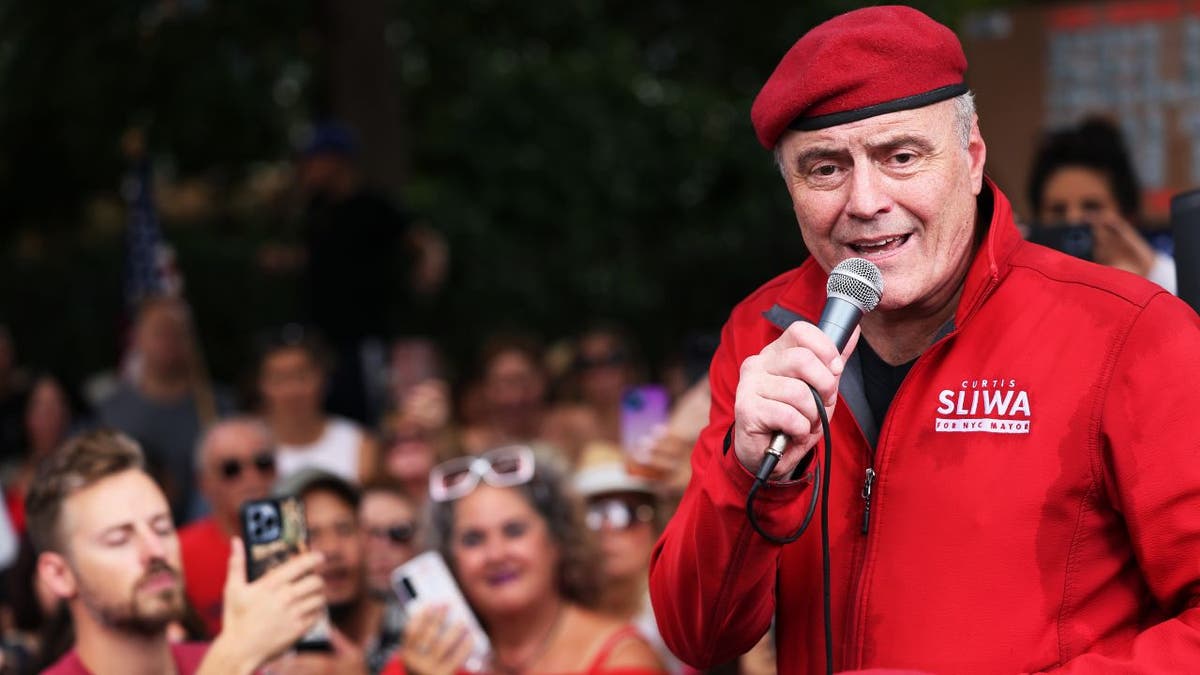
Guardian Angels founder Curtis Sliwa speaks during an anti-migrant rally and protest outside of Gracie Mansion on August 27, 2023, in New York City. (Michael M. Santiago/Getty Images)
In response to the criticism, a campaign representative for Cuomo zeroed in on Adams’ comments.
«This is a primary that the mayor didn’t participate in because he knew he’d lose,» Rich Azzopardi told Fox News Digital. «The governor got 36,000 more votes three weeks ago than the mayor got four years ago, when he was at the height of his popularity and people actually wanted to give him a chance.»
Azzopardi also pointed to an email Cuomo sent to supporters Monday noting he «made mistakes in the primary,» such as being too comfortable with polling that showed he was the front-runner. The email also spoke to Mamdani, but did not directly address Sliwa.
«I do not believe that New York City voters affirmatively voted for a socialist form of government that is hostile to business and economic growth, and I do believe that Zohran Mamdani poses a serious threat to the future of the city we love. I will give it my all to stop him,» the email from Cuomo stated.
CLICK HERE TO GET THE FOX NEWS APP
«I also believe that all of us who love New York City must be united in running the strongest possible candidate against Zohran Mamdani in the November general election for mayor. Our common goal must be to run the strongest candidate against Mr. Mamdani. That is why I have accepted the proposal put forth by former Governor David Paterson and candidate Jim Walden that, in mid-September, we will determine which candidate is strongest against Mamdani and all other candidates will stand down, rather than act as spoilers and guarantee Mamdani’s election.»
On Monday, incumbent mayor Adams slammed the proposal mentioned by Cuomo in his email to supporters, which seeks to get the rest of the campaign field to pledge to consolidate around the strongest non-Mamdani candidate.
«This proposal that was put out. It was Andrew’s proposal. He uses people to put things out that he really would like to come later and say, ‘OK, I endorse what an independent person is doing,’» Adams said Monday.
INTERNACIONAL
Donald Trump empieza a tomarle el gusto al fútbol: ya piensa en cómo sacar rédito político del Mundial, tras su show con el Chelsea

¿Y los extranjeros?
-
ECONOMIA3 días ago
🧨 El dólar se recalienta y vuelve el temor a una corrida: por qué el peso argentino pierde valor día a día
-
POLITICA1 día ago
Milei y Bullrich se juntaron en Olivos y hablaron del camino a las elecciones de octubre
-
POLITICA23 horas ago
Qué hay detrás del reencuentro público de Hugo Moyano y su hijo Pablo en las ollas populares de la CATT















